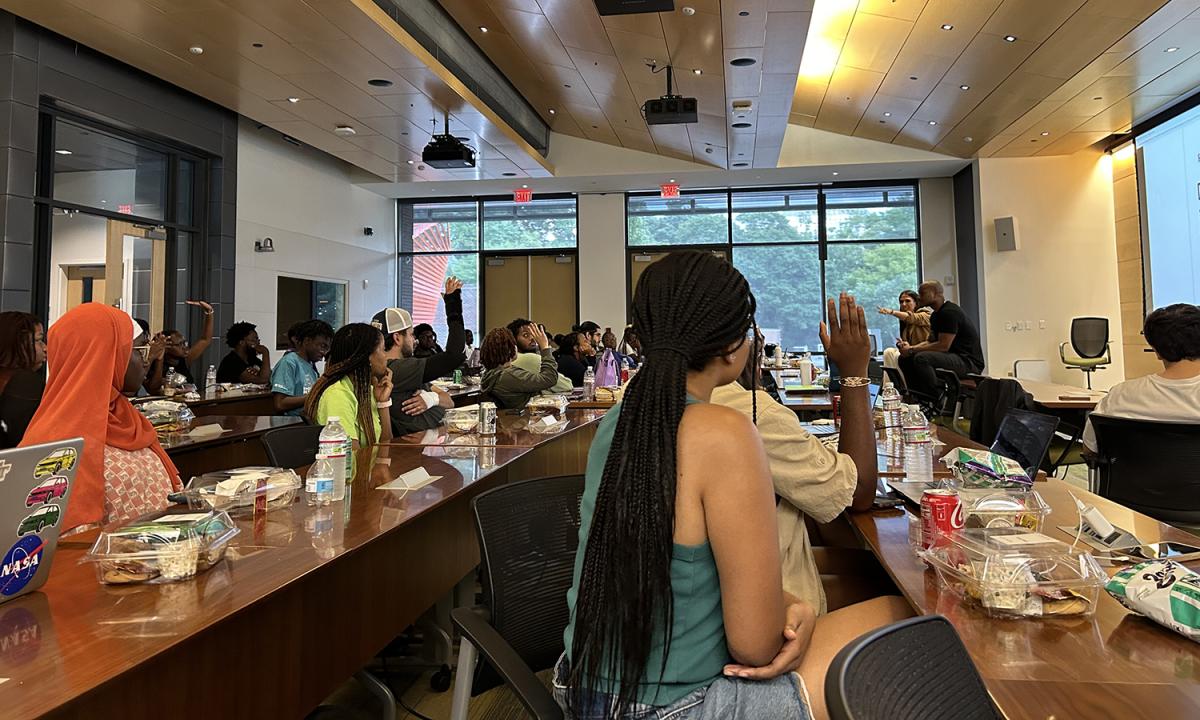CEED workshop focuses on financial, academic, and professional development for undergraduate students.

The Center for Engineering Education and Diversity (CEED) hosted a workshop focused on the financial, academic, and professional development of undergraduate students Sept. 24, featuring speaker DJ Lewis.
Lewis focused on three key messages for the students in attendance: Stay authentic to yourself, don't hesitate to ask for help when needed, and remain intentional about personal growth and career success. He titled his presentation “Young, Dumb, and Broke.”
Lewis earned his nuclear and radiological engineering degree at Georgia Tech in 2018 and is director of strategic partnerships and alliances at Insight Global. He was named to the 2024 Georgia Tech Alumni Association 40 Under 40.
Lewis shared his journey through education, professional experiences, and personal growth. With a background in nuclear engineering and experience working at tech giants like Google and IBM, Lewis offered insights into navigating the challenges of higher education and building a successful career.

Lewis reflected on his transition from high school to the rigorous academic environment at Tech. Like many students, he struggled with time management and studying techniques.
He candidly recounted his academic mistakes and emphasized the importance of students showing up to classes and keeping commitments as well as seeking support when they need it. He also pushed students to develop effective time management skills.
The PIE of Professional Success
Lewis introduced the workshop audience to the PIE concept for career advancement:
- Performance: How well you do your job
- Image: Managing perceptions in different professional environments
- Exposure: The narrative people create about you when you're not present
He stressed that these three components create a holistic view of one's contribution to the work environment and can significantly impact the quality of professional relationships.
Lewis also offered practical advice for maintaining a healthy work-life balance. He suggested proactive communication and sharing calendars with loved ones. He also emphasized setting realistic expectations for daily availability.
These strategies, he said, can help maintain personal relationships while pursuing professional goals.
Lewis also highlighted the significance of community work. He shared his involvement with nonprofit organizations that support youth of color through mentorship and scholarships. Lewis emphasized that developing skills and creating career pathways for disadvantaged groups is crucial for societal progress.
(text and background only visible when logged in)